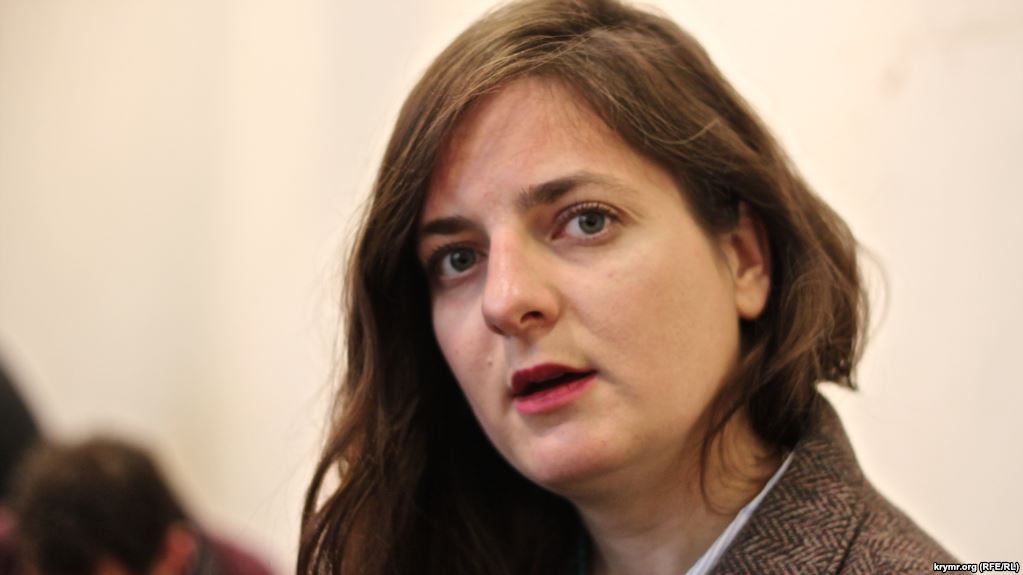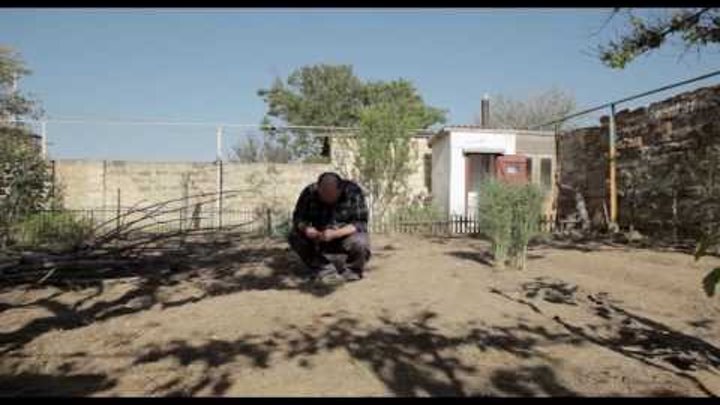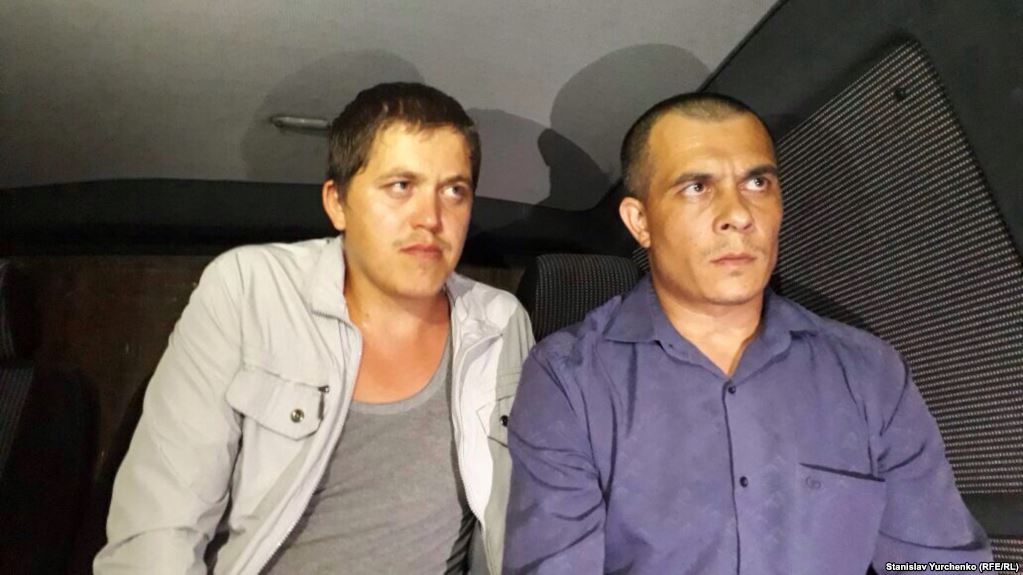- What was your goal in telling these stories?
- My goal was to tell the story of these people. I wanted to show how strong their love is and how easily politics destroys their lives that could have turned into something beautiful. I didn’t want to focus on criminal Russia. I wanted to show something bright and beautiful that can be found in every human being, despite gloom and doom and discrimination.
It was also important to tell these stories emotionally and poetically, to show what happens to people living under occupation, and not to focus spectators on actual facts - they can watch or read the news every day. I wanted to get as deep as possible… into the hearts and souls of suffering people.
We thought that if we showed real pain and grief, it would be understood better than any direct criticism of Russia.

- The film draws a parallel between 2014 and 1944. One of the protagonists refers to what happened to the Crimean Tatars as “self-deportation”. How would you call it?
- The history of the Crimean Tatars is a very strong metaphor. Europe is going through a difficult time today. In France, I’ve talked to different people, such as architects, who have built villas and homes for wealthy Russians. They support Russia because they’re afraid. This is very sad and frustrating; Europe is too tolerant towards Russia
. We see that one country can put extreme pressure on another just because it wants to, and be proud of it. Just this fact is proof that man hasn’t learned anything from his past mistakes.
We can see this clearly in Crimea. In 1944, the lives of many Crimean Tatars were destroyed, and no one apologized. Of course, then it was forced deportation, but what we’re witnessing now is what I’d call silent deportation, that is, when authorities create specific conditions that force people to leave if they want a future, as in Crimea they can’t express or fulfill themselves.
- What did you think of Crimea? What did you see there?
- I saw that Crimea, a tourist zone, had been turned into a military base. We were there in summer, but there were no tourists on the beaches. The road to the seaside was lined with soldiers. We saw many tanks. And people in our film say that they hear shooting every day… soldiers training.
- At the beginning of the film we understand that these people are risking their lives because they’re talking to you. Have you heard from them at all?
- They say that it’s hard for them. Crimean Tatar schools and channels have been closed down. Russia is installing an atmosphere of fear. Many young people have gone to mainland Ukraine. The elderly have stayed, as have ordinary workers. But, they must remain silent. Intellectuals are slowly leaving because they don’t have the opportunity to create and develop in such a hostile environment. But, this is common knowledge.
- What solution do you see for your protagonists?
- I can’t give anyone advice on what to do. Human life is a mystery. Everyone must decide for himself. The most important thing you can give another person is respect.
I think that Crimean Tatars patriotism is expressed in a special way. They’re very kind people. Their patriotism is tied to “Landlust”, as the Germans say (literally Lust/Desire for your Land). During the 1980 perestroika year, Crimean Tatars had a chance to return home. They settled down, built homes, started families, and now they must leave again, leave these houses empty. Their example makes us think about how important it is for a man to have his own place.

- Your protagonists share their painful memories and don’t hide their tears. They’re not afraid of looking weak. How did you manage to win their trust?
- Well, it’s my job. For me, there’s no clear boundary between life and shooting a film. One flows into the other. If you work hard and put in a lot of time, open your heart to others, you end up coming together and trusting each other. We stayed with them for weeks, sleeping in their homes, eating meals together. We listened to them. We didn’t hesitate to tell them about our own families. We talked about what we love, what makes us cry. It was perfectly natural.
- You worked undercover. How was it?
- It was just awful. We joked that could write the script for a thriller about our experience. Actually it was very difficult to organize shooting in Crimea because it’s almost impossible to film what’s really happening there. You must remember how it was with Oleh Sentsov. So, no one knew where and what we were shooting. The first time we crossed the border as hikers and climbers, hiding our equipment in backpacks. A little later, the Russian embassy in Poland called me. We knew that our phones were tapped. We began thinking of a safer way to continue our work. The leader of the Crimean Tatars, Mustafa Dzhemilev, whom we met several times, helped us. He called his people to help us. Here’s what happened - we crossed the border in a car, and the equipment was in another. Then, we got into another car to get rid of the tail, and make sure that no one knew where we were going.
- Were you threatened?
- Yes, we had problems. But, after we showed the film to a wider audience, we managed to calm down a bit. We spoke with Mustafa Dzhemilev while we were shooting. He said that it was very important not to get caught before showing the film as they could remove scenes and do whatever they wanted with them.
- How did you find your protagonists?
- We found them in Kyiv. I went to the displaced persons camp in Pushcha Vodytsia. There I met Oleksandr and Taras. We immediately became friends. It was April, just after the annexation of Crimea. We were taking part in a workshop, but we dropped that and began shooting the film. A Polish producer approached us and said: “I’m with you. Here’s the money. Go and get your story!” When we met with the refugees, we felt that we should go to Crimea and tell the stories of their families.
- What do the four Crimean Tatar families in the film have in common?
- I got the impression that Crimean Tatars are extremely hardworking. They take very good care of their homes and gardens. Family is very important to them. They’re very hospitable. They told us that a guest is like a visiting angel, so you need to behave accordingly. They aren’t aggressive. In any case, those are the people you see in my film.
- How did the Polish audience react to your film?
- I was surprised… very well. Many spectators were deeply moved. Many approached me and said that the film showed them how important it is to maintain contact with one’s family. This is what we’ve learned from the Crimean Tatars. We worked on the shooting for two years; it was just work, work, and more work, and then at some point, we all began saying that it was time to think about getting back to our families.





